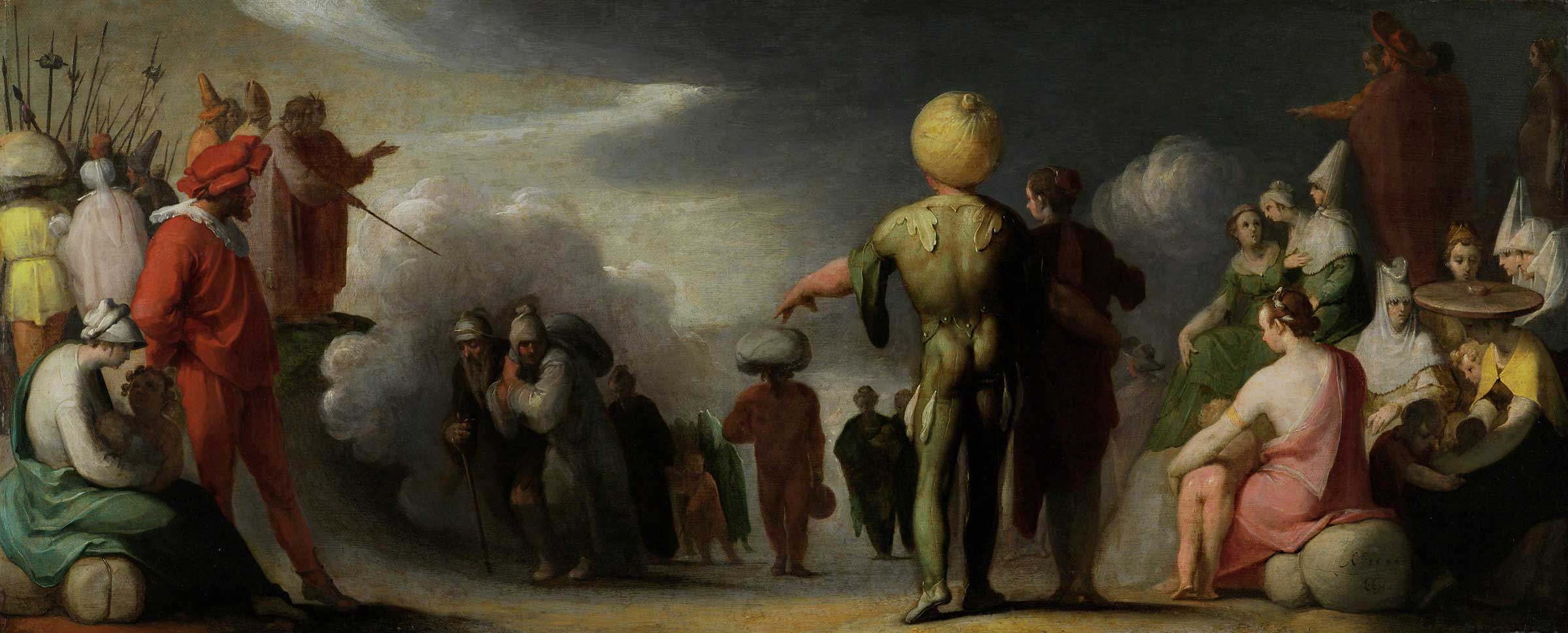Do not fear the clatter of wheels, the bumps and slops in corridors. It is only turbulence.
—Romalyn Ante, 2020Night Shift
Jack Black catches the midnight train.
A long, heavy westbound freight train was slowly pulling out when I got to the railroad yards. A car of lumber, clean and white, piled halfway to the roof, the door invitingly open, came along. Nimbly I swung up and in.
Inside the car I looked about for a place to secrete myself. The lumber was about six feet shorter than the car, which left a large space at one end. I dropped down into it, took off my coat, and stretched out on the floor, feeling sure of a long ride. No brakeman would crawl over that pile of lumber even if he knew there was a hiding place at one end.
Along in the afternoon, after one of the many stops, I heard a scrambling above, and a young fellow about my own age dropped lightly down beside me. I had been in the car so long that the half light was enough. I saw he was ragged and frightfully dirty, road dirt—coal smoke, cinders, ashes, grease. His coat, too large for the thin frame, was full of holes, and its lining hung in tatters. His trousers were greasy and full of hot-cinder holes. His calico shirt was open in front, his skin was dirty. He was sharp-eyed and thin-faced. He eyed me wolfishly.
“How long you been here?”
“All day.”
“Where you headin’ for?”
“Denver.”
“Got a smoke?”
He dug a dirty newspaper out of his back pocket, neatly tore a piece off the border, tearing it downward with the grain, till he had a piece the size of a cigarette paper. A search of his coat pocket yielded a cigar snipe, which he crushed in his hand and then rolled up in the paper he had held in his mouth. “Got a match?”
He looked at me in disgust, dug up one of his own, and lit up. The smell of his cigarette was fierce. He now took off his shoes. One of them was laced with dirty white string. He had no socks, his feet were grimy and smelled. His coat came off next; with it and his shoes he made a pillow and stretched out on the floor.
“Won’t the brakeman smell that smoke?” I asked.
“To hell with him an’ you,” and he spoke no more. Finishing his smoke, he adjusted his pillow and went to sleep. I rolled my coat up, made a pillow, and dozed. I was afraid he would steal my shoes, so I left them on.
Something woke me in the evening. I think it was the lumber shifting. The train was on a downgrade, the car creaking and rocking. We were in the front end. Suddenly my companion jumped to his feet. He looked scared, started to crawl up on top of the lumber. He was too late. There was a grinding noise, and a crash. About four feet of the top of the lumber slid forward against the front end of the car, and he was crushed, flattened between. I was a prisoner below, unhurt. This shifting of the lumber cut off the light from the open side door, but its weight against the end of the car opened up some cracks, and I was soon able to see about me dimly. The boy had died instantly. His body, from the waist up, was flattened between the lumber and front end of the car. His legs dangled below, down where I was imprisoned, with each movement of the car, like the legs of a scarecrow in the wind.
I can’t remember that I was shocked or frightened, but I do know that as soon as I found I was imprisoned in that car, I got hungry. I hadn’t eaten since morning and was hungry before the thing happened. But then I knew I could get out and eat at any stop. Now I couldn’t, and my hunger became unbearable.

Israelites Crossing the Red Sea, by Cornelis Cornelisz Van Haarlem, 1594. Princeton University Art Museum, museum purchase, gift of George L. Craig Jr. and Mrs. Craig.
The place I was in was large as ever, except in height. The shifting of the lumber had reduced that to about three feet. I couldn’t stand up. I was in no danger. The lumber could not shift at the bottom, the weight of that above was too heavy. I had a strong pocketknife and went to work on the side of the car near the end. The boarding was thin, weather-rotten, and old. In a couple of hours, I had cut almost through one end of three boards. My hands were blistered. I sat down and waited till I heard the whistle blow for a town.
As the train went into the yards, I kicked the boards loose at the top where they were cut and pulled them away from below where they were nailed. This gave me a hole large enough to crawl out of, which I did, feet first, pulling my coat after, when she stopped. Up on the main street, I learned I was in Dodge City, Kansas, a town at that time largely given over to gambling, fighting, and whiskey drinking. I wasn’t interested in any of those amusements then. I got something to eat and went to a cheap room for the night. Tired out, I slept till noon the next day. Then I went down to the yards to look for another train out. Near the depot I met a character who looked like a bum. He gave me a sharp look.
“Goin’ down in the yards, young feller?”
“Yes, why?”
“Better wait till night if you want to make a train. The railroad bull is hostile. They found a bum dead in a car of lumber this morning, and they had to tear the end of the car off to get his body out. He must have been an awful gay cat to get into the end of a carload of planed lumber. It’s suicide.”
I went back uptown and into a lunch counter. The waiter was idle and talkative.
“Traveling?” he asked.
“Yes.”
“Which way?”
“Denver.”
“Beating it?”
“Yes.”
“Listen here, it’ll take you three or four days to make Denver that way. You’ll ruin your clothes and maybe get grabbed off a train and handed thirty days at Colorado Springs—big chain gang there—they’re cleaning up the streets. If you can dig up five dollars, I’ll give you a card to a porter on the Overland tonight. Give him the five, and he’ll do the rest.”
“Thanks, I’ll try it.”
I met the train and the porter who took the card and my five dollars, stowed me away in the linen closet, and locked the door. I was almost suffocated. Once in the night, he opened the closet. “How you makin’ out, buddy?”
“All right,” I said, and the door was locked again.
Next morning he gave me a piece of steak between slices of bread and a bottle of coffee. After that I felt better and dozed in a cramped, sitting position in a corner.
That afternoon at Denver I was released, happy, hungry, cramped, and tired. I rented a cheap room for a week, went to a barbershop, and had a bath. I thought twenty-five cents for a bath a rank waste of money and decided to find a swimming hole. In a few days I found one.
There was a sort of camp for bums on the riverbank under some trees. They had their fires there and cans for boiling coffee. They used to lie around, washing and boiling their clothes, and swimming. They stole chickens around the neighborhood and anything else they could get.
One afternoon I was in swimming when suddenly there was an alarm and everybody ran. I didn’t pay any attention to it at first; then I got out of the water and ran for my clothes. I had just about got them on when the police arrived and grabbed me. They put me into the patrol wagon. I was the only one they got. Later they picked up one or two others around in the woods and took us all down to the jail. I was scared half to death.
They put us all in one big room with a lot of other bums they’d picked up. The police had had a general order to clean up the town.
In the morning they took us all up to court. It was the first time I had been in court. We were all charged with vagrancy. When my name was called, I protested. I said, “Judge, you can’t call me a vagrant. I have twenty dollars down in the jail office.”
He looked at me as coldly and impersonally as if I had been a dish of parsnips. “Fifteen days on the chain gang. Next case.”
Jack Black
From You Can’t Win. Shortly after leaving school at the age of fourteen, Black was arrested for burglary for the first time. He later claimed to have read the entirety of the Encyclopedia Britannica during one of his many stints in prison. Elsewhere in this memoir, his only published work (which was originally serialized in newspapers), Black recounts how, when he was as a child in the 1870s, his mother gave him a new toothbrush and tried to teach him how to use it. “This was the greatest indignity,” he writes. “I threw the thing away and refused to use it: told her up and down that I was ‘no girl.’ ”


